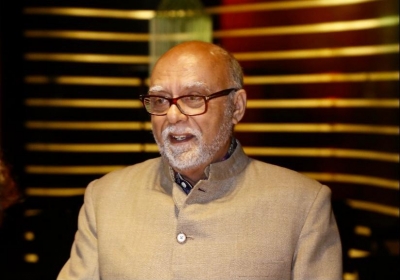By Siddhi Jain
New Delhi– Reflecting on this time of great change brought about by new discoveries and breakthroughs happening continuously in nearly every field of human endeavour, economics enthusiast and acclaimed author of ‘The Economic Reactor’ Rajiv Bahl has come up with a new book on work in an ever-changing world.
Titled ‘Re-imaging Jobs in a Fast-Changing World’, the 2021 book is published by Rupa Publications. It proposes a Universal Supplementary Income Scheme to create over a hundred million jobs in India. A seasoned entrepreneur, Rajiv is also known in the startup ecosystem as the Founder of Fun Foods, an internationally popular brand later acquired by a multinational food major.
No matter where we look, we see rapid change either already upon us, or being imminent.
Says the author: “Never before in the history of our species have we encountered such rapid change. It is important that we understand the magnitude of the coming changes and where we are headed as a civilization and also how we may cope with the changed circumstances that the rapid changes will usher in upon us.”
The book’s first part looks closely at the changes that are being wrought in eight distinct spheres of human activity that the author thinks will have the largest impact upon the way we live our lives. The eight areas are: Artificial intelligence, energy, manufacturing, the sharing economy, transport and connectivity, water purification and desalination, agriculture and meat production, and health and well-being.
In addition, the author has summed up the changes coming to the construction industry, automated clothes manufacturing and automated home cooking solutions.
At the end of each chapter, which studies one of these areas, the book analyzes the likely consequences of the developments in that field. It examines both the desirable and worrisome consequences. The consequences are similar across all fields. The desirable consequences are that all goods, including energy, manufactured goods of all sorts, clean water, agricultural produce, meat production and health delivery will become cheaper, of better quality and less damaging to the environment. The one worrisome consequence that runs through all fields is that jobs will become scarcer.
“We are already beginning to see the loss of jobs. The virus from Wuhan has speeded up the process. Many jobs that were until recently being done by humans, are now being done by machines and Artificial Intelligence. Businesses are discovering that they can make do with fewer employees. This process will speed up further until the loss of jobs will become the central issue before all countries and governments. If not handled properly the dearth of jobs could lead to a breakdown of law and order or even anarchy.
“We are not entirely helpless against the advancing tide of automated human-less jobs. There are many jobs that intelligent machines will not be able to do for at least one of three reasons. The first reason is that some jobs that require human interactions will be difficult to automate. It is difficult to imagine a robotic nurse imparting the same level of comfort and confidence that an experienced human nurse can. The list of jobs that machines cannot do for technological reasons will grow progressively shorter as technology improves but will never vanish. The second reason is that while it may be possible to automate some tasks, it will not be financially viable to try and automate them. Street foods and gourmet foods are examples. The third reason is that while it may be possible to automate a certain task, there would be no takers for it. For example computer programs are already the best chess players in the world, but no one is interested to watch two computer programs slug it out in a match that will last all of a few nano-seconds,” says Bahl.
While the logic of the book applies to every country, the second part of the book, which addresses job creation, is India specific. Like every country India has some attributes that will make the process of meaningful job creation easier and some that will make it harder.
The book proposes a modest Universal Supplementary Income (USI) scheme, which will not only alleviate immediate hardship but also kick start the process of job creation. There are some steps that India can take to hasten the process which have been identified. (IANS)















